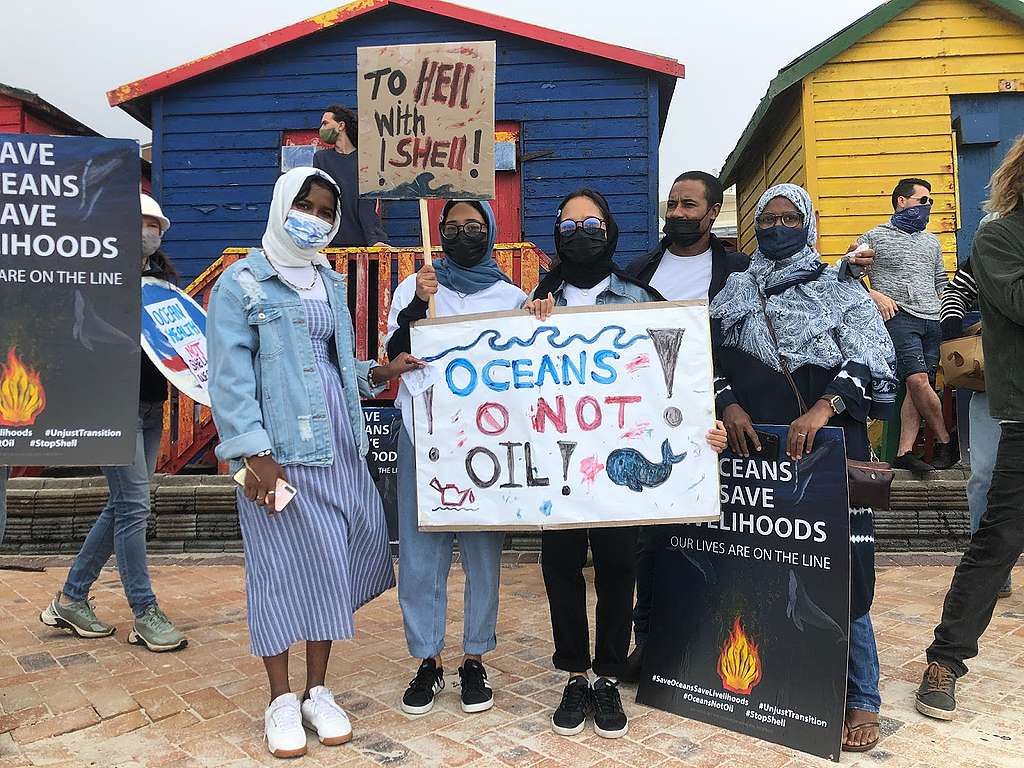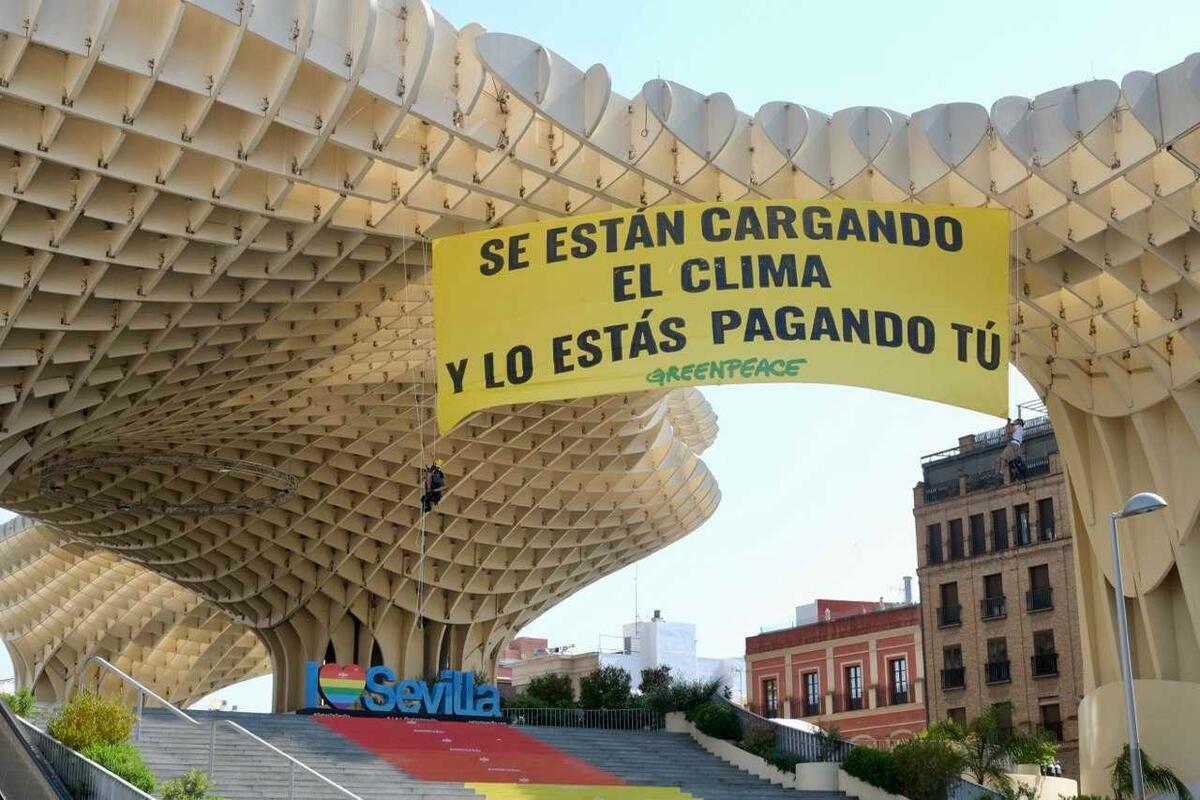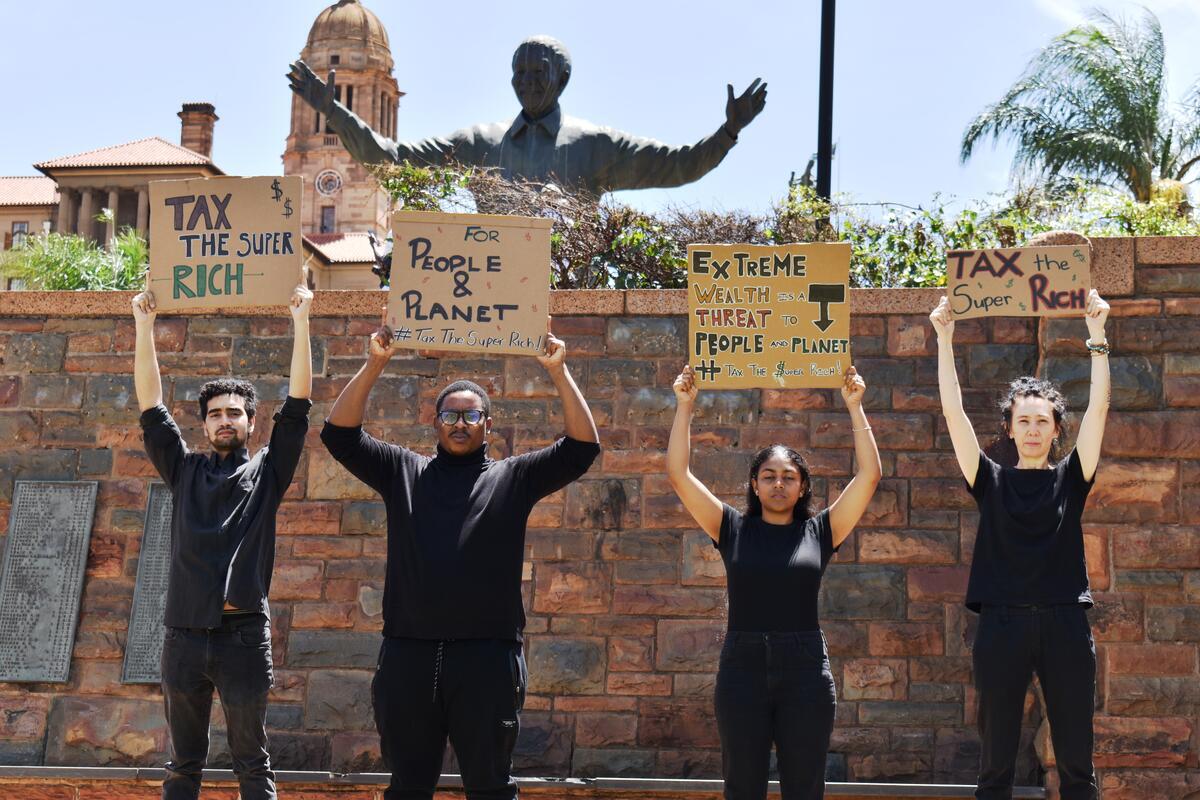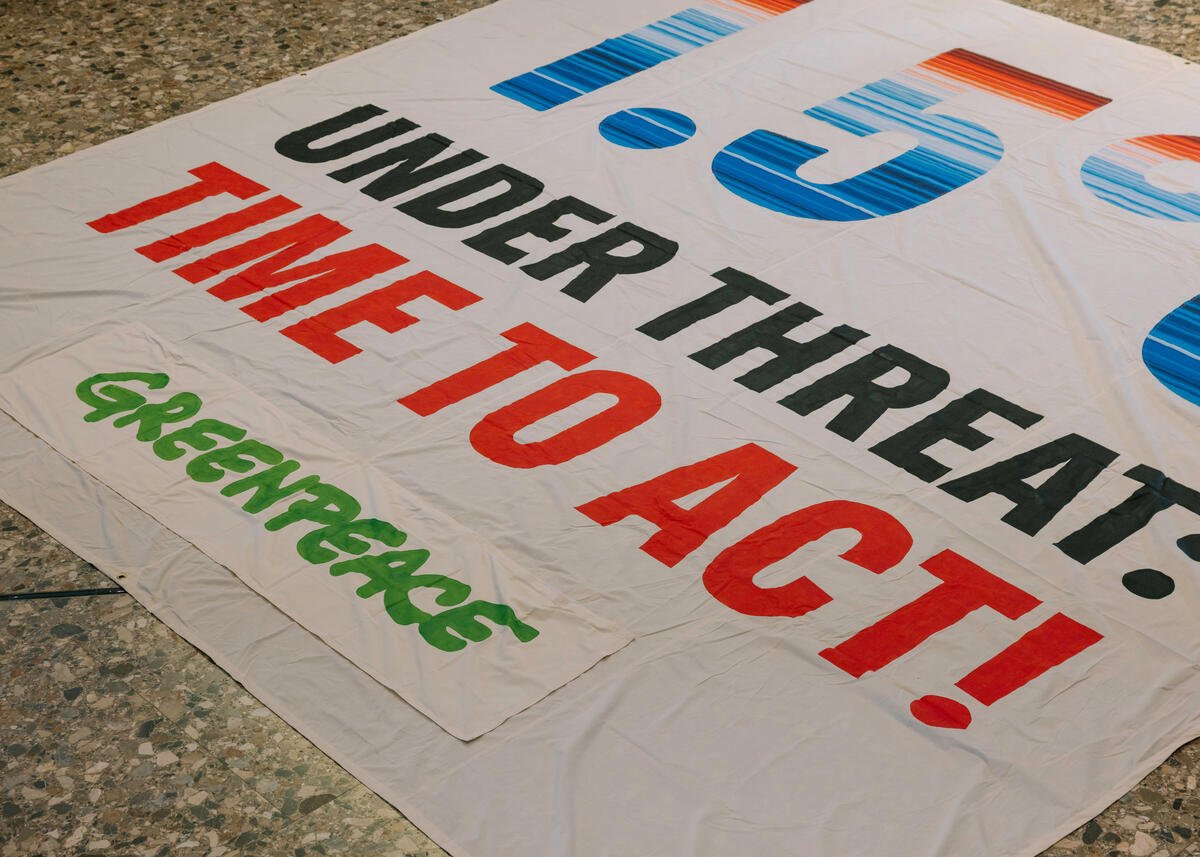
Just weeks after world leaders failed us at COP26 by not committing to urgent action to end the climate crisis, the controversial South African Minister of Minerals and Energy Gwede Mantashe has confirmed the go-ahead to Shell Exploration and Production’s seismic survey, searching for oil and gas deposits on the South African Wild Coast, despite massive local opposition.
The project is set to run for five months, blasting shockwaves into the Earth’s crust below the seabed every ten seconds! The use of seismic waves could have a devastating impact on the health of marine life, and if the exploration for oil and gas were successful. According to experts from the South African Association for Marine Biological Research, there is no safe way to drill for, extract or transport oil, which means the Wild Coast would always be at risk of an oil spill. The operations would potentially have a devastating impact on the communities that depend on eco-tourism and fishing for their livelihoods.
Greenpeace Africa and partners have challenged the oil and gas giant in court; and although the interdict wasn’t successful, they have not given up! They are still pursuing legal action, by supporting a second interdict filed by affected communities [read the update on this major legal victory]. Shell has a knack for getting around legal action; it recently announced the relocation of its headquarters to the United Kingdom, after Netherlands courts demanded that it cut emissions by 45 percent by 2030 to better align with targets set out in the Paris agreement.
These developments clearly demonstrate how fossil fuel players like Shell don’t care about the dangerous consequences of their actions — with case after case showing how oil giants care very little about the environmental impact of their operations, leaving local communities destitute and ecosystems destroyed. They are quick to place profit before people, and the planet.
Power to the people
My fellow South Africans, however, have not taken the news lying down. The moment the Amazon Warrior (the vessel conducting the seismic surveys) docked in Cape Town harbour, hundreds of community activists stood ready to send it back to where it came from. The protests followed for weeks after its arrival, in almost 100 different towns across the country, predominantly along the South African coastline — these are still ongoing!
Many Indigenous coastal communities were outraged at the government’s decision to jeopardise their means of living. For most people of colour living along the South African coast, the ocean is important to their livelihoods, as well as their spirituality.
The pressures of industrial fishing have already placed the economic stability of coastal communities in a chokehold; the impact of another Shell-induced disaster would be devastating. One such community, the Amadiba, who live where the testing is set to roll out, say that Shell is only adding to their long list of struggles.
“For over two decades, the coastal Amadiba community has fought against opencast mining on our land. Now we also must fight against the mining of the ocean,” Amadiba Crisis Committee’s Nonhle Mbuthuma told The Daily Maverick. “Indigenous people along the whole coast of Africa must have the right to say no to everything that threatens their livelihood.”
Shell’s track record
One doesn’t have to look very far to see that their concerns are more than justified. Our neighbours to the north are likely to never recover from the destruction that Shell has inflicted on their environment, despite the tireless work organisations like Environmental Rights Action do to achieve accountability for the destruction.
Possibly Shell’s most infamous environmental blunders, the Niger Delta is a clear example of how big oil companies tend to divert responsibility for damages to the health, livelihoods, and environments of communities where they operate.
Shell began pumping oil in the Niger Delta in 1958, but halted operations 35 years later after relentless protest action against the environmental impact of extraction led by the Movement for the Survival of the Ogoni People. Not only have their oil spills “turned the rain black”, but countless lives were brutally lost at the hand of the country’s military, who mercilessly slaughtered protestors and bulldozed whole villages to secure Shell’s financial interests.
Houtbay, Bryanston, Steenberg’s Cove and St Helena Bay fishermen sent a clear message to @Shell. Seismic blasting on the Wild Coast will not only destroy precious ecosystems but will also impact local communities, all in the name of profit. #StopShell: https://t.co/eqqvBLoHd7 pic.twitter.com/G9yvA88w11
— Greenpeace Africa (@Greenpeaceafric) December 8, 2021
The real cost to coastal communities
The seismic testing alone poses a significant threat to our marine ecosystems. It involves blasting the seabed with high powered airguns; and these blasts disturb, injure and kill marine life. As humans, we can compare it to explosives being detonated every 10 seconds. Not only do we risk destroying the livelihoods of Indigenous coastal communities, who rely on ecotourism and fishing for a living, but also the existence of several endangered marine species unique to our country.
Leave the (endangered) whales alone
Species like the southern right whale frequent our waters. They were brought back from the brink of extinction in the early 20th century, and have been a protected species in South Africa since 1935. The Coelacanth fish, which was thought to have been extinct for 66 million years, was rediscovered in 1938 off the East London coast and was spotted as recently as 2019. These are just two examples of precious marine life driving ecotourism and important scientific study in the country.
Underwater forests curbing climate change
And should Shell’s testing prove to be successful, it poses a further threat to our climate change-negating, kelp forest-rich west coast. We often forget that oceans also produce oxygen, trap carbon dioxide, and excess heat. It is one of our best defences in the climate crisis; yet, 70 percent of ocean areas are already under severe pressure from climate change — with ecosystems and biodiversity showing rapid decline due to human impacts.
Shell must be stopped
Shell must be stopped. The world cannot afford another environmental catastrophe, not here and not anywhere. This development doesn’t only have dire consequences for the coastal communities of my country, but for the entire world — as we all pay the hefty price for corporate greed driven by extractivist neo-colonial approaches.
Take action, now!



